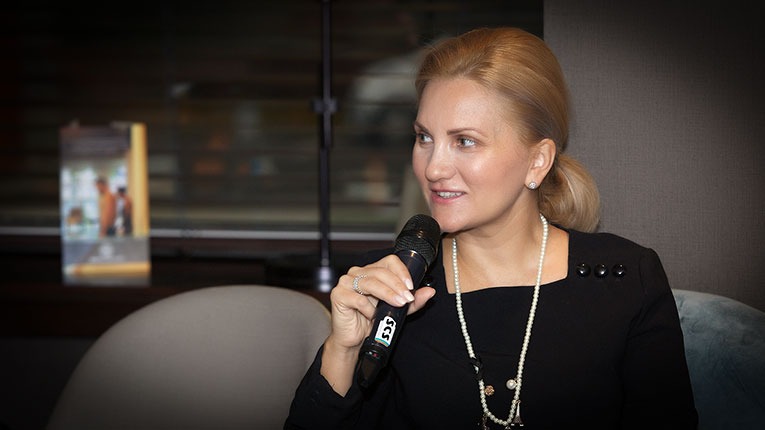Varinia Radu, founder and CEO of Energynomics, was one of the speakers in an exclusive top-level conversation Energynomics hosted on the expected outcomes of the COP26 conference in Glasgow. After the speeches from HE Mr. Andrew Noble, the UK ambassador to Romania and Anna Akhalkatsi, World Bank Country Manager for Romania, she made the transition from the overall global policies and outlook to the private sector, where policies and targets are to be implemented.
“The hard job is going to be on the private sector, on the companies will have to take on board all of these new measures”, she said, before presenting some of the risks all shareholders must take into account in this moment of the green transformation. As a lawyer specializing in energy and climate change, with about 20 years experience, she mentioned, first of all, “the physical risks of the climate change, as well as the transition risks”. “Transitioning to a low carbon economy entails extensive policy, legal, technology and market changes to address mitigations and adaptation requirements. What we see from our clients from the private sector is a huge willingness to be part of this climate change. Hence, we see a lot of funds and a lot of human resources in technological efforts being brought up to the table especially by the energy sector so that the companies can be agile and adapt to these risks. Then, there are the financial risks. How the financial sector assesses the climate change impact, but also the credibility of the companies? The companies need to take the necessary measures internally to prepare for the new requirements for financial and non-financial reporting, as well as to work together with the financial institutions to better understand where the risks are and ensure that the financial markets will continue to bring the necessary resources for these tremendous investments that are needed.”
Varinia Radu also mentioned the fact that “the reporting and reputational risks of the companies are completely up to the level of the board”. Every decision, every strategy starts now even more than before at the top level of the company, she explained. “So it is going to be extremely important what kind of declarations and public disclosures the companies will have concerning their sustainability goals, their actual plans and how they will follow up on the implementation of such plans.”
Another risk Varinia Radu mentioned was the litigation risk. “The companies are held liable to anything that pertains to their actions, their potential lack of compliance, breaches of certain requirements or legislation undertakings. So it will be critical for the companies to put in place preventive measures and crisis management teams that can deal with such events”, she urged.
ASLO READ Anna Akhalkatsi (World Bank): COP26 must be about ambition and action
ASLO READ Corina Popescu: We need to know what to build on our long-term investment plan
ASLO READ Andrew Noble: Fighting climate change is relevant to each of us
ASLO READ Alexandru Maximescu (OMV Petrom): Gas resources are needed for the energy transition in Europe
